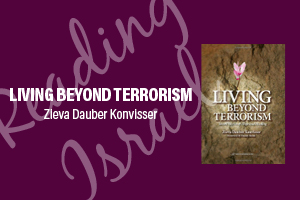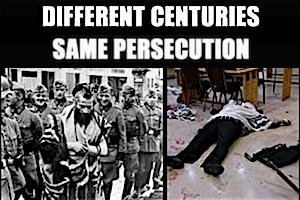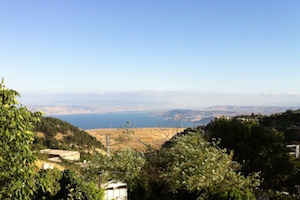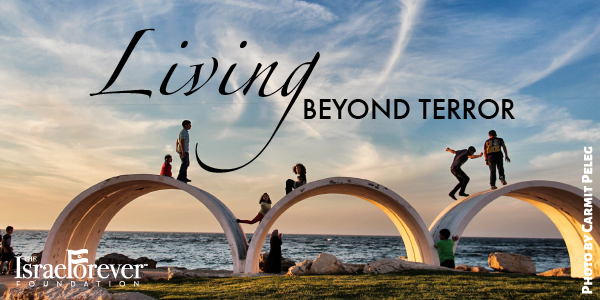Uncovering Stories of Hope and Healing
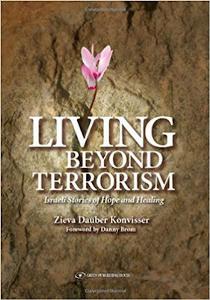
The drive to write Living Beyond Terrorism emerged from two questions that evolved from my personal experiences as a second-generation witness to the Holocaust when I participated in an international leadership intensive program at Auschwitz-Birkenau in 1995, followed by a visit to Israel in October 2002 at the height of the Second Intifada: How can we learn from our experiences to prevent genocide? And how can we move beyond the trauma of such an event?
My interest in terror survivors in Israel began years ago as I heard the extraordinary stories of survivors of the Holocaust, in particular those few members of my own family who had survived. More than thirty of my relatives – my grandmother’s parents, brothers and sisters and their families, as well as six of my grandfather’s seven brothers and sisters and their families, and numerous cousins – were murdered in Vilna, in what is now Lithuania.
Most of my family members who survived left Europe for Palestine or the United States in the early 1930’s, including my mother’s parents who were ardent Zionists and moved to Jerusalem with their three children.
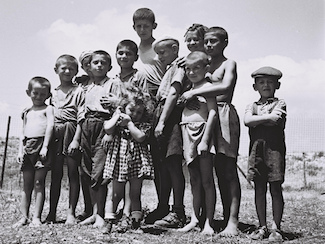
A Group of Orphan Holocaust Survivors | by Government Press Office (GPO)
A few cousins remained behind and lived to tell their stories. Sima Shmerkovitz Skurkovitz, as a seventeen-year old girl, lived through the hell of the Vilna Ghetto and Nazi concentration camps but managed to survive without losing her humanity. Her singing gave hope to her companions in the terrible darkness of the Nazi Holocaust.
Izaak Wirszup, his wife Pera, and her daughter Marina also survived the Holocaust. Izaak lived through the Vilna Ghetto and the camps and came out believing that he was spared in order to make a difference. He encouraged me and others to “try for the maximum.” Out of their struggle came a survivor’s love of life. Izaak expressed it this way: “We have seen how love, friendship, and help can transform the most fragile souls into individuals stronger than steel.”
In the face of overwhelming disaster, many stories of otherwise ordinary people describe how they called forth, from the depths of the human spirit, courage they never knew they possessed, found meaning from their deeds, experiences, and attitudes, and turned tragedy into triumph, allowing growth and wellness to thrive.
Examining politically motivated violence during the Second Intifada, I sought to give voice to the individual “stories” – oral histories or testimonies - of those who have survived terror as a way to humanize people whose lives have been destroyed, to help them heal, as a gift to them and their families, and as a legacy for others to remember and learn from their experiences.
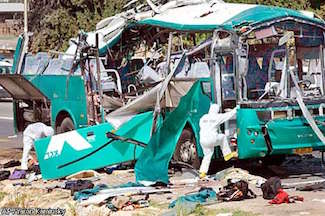
Debris from a bus bombing Sunday, Aug. 4, 2002. Credits: AP / Yaron Keminskyk
Though this collection of stories that encompass the most horrifying evils, it is still a book about life. It is a book about living. It is a book about finding the courage and resistance to continue on despite and in spite of the world around us.
The individuals in this book are otherwise ordinary people performing ordinary activities—Jews, Christians, Muslims, and Druze riding in buses, dining in restaurants, shopping in markets, studying at college, visiting hotels, or walking on the street—who suddenly become victims of suicide bombings, shooting attacks, and rocket attacks. Their responses and coping mechanisms ranged widely. While they may experience severe distress, including physical limitations, stress symptoms, and anxiety, at the same time they develop visions for the future, identify new possibilities, and actively seek solutions for dealing with challenges, rather than waiting passively for something to happen.
The image on the front cover of the book of the fragile rakefet or cyclamen flower pushing up through the crack in the hard stone wall symbolizes the rebirth and new growth that so effectively reflects the reality of the perseverance, hope and healing of these Israeli survivors of terror.
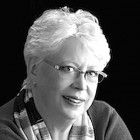
Zieva Dauber Konvisser, PhD, is a Fellow of the Institute for Social Innovation at Fielding Graduate University. Her research focuses on the human impact of traumatic events, such as terrorism, genocide, war, and wrongful conviction. She served on the National Commission on American Jewish Women and is currently on the international board of the Israel Center for the Treatment of Psychotrauma and the advisory board of Strength to Strength. She is the author of "Living Beyond Terrorism: Israeli Stories of Hope and Healing" (Gefen, 2014). The book can be ordered HERE.
Recommended for you:
LIVING BEYOND TERROR
Explore images, videos, and words as a light in the darkness and a hope for our future.
About the Author


